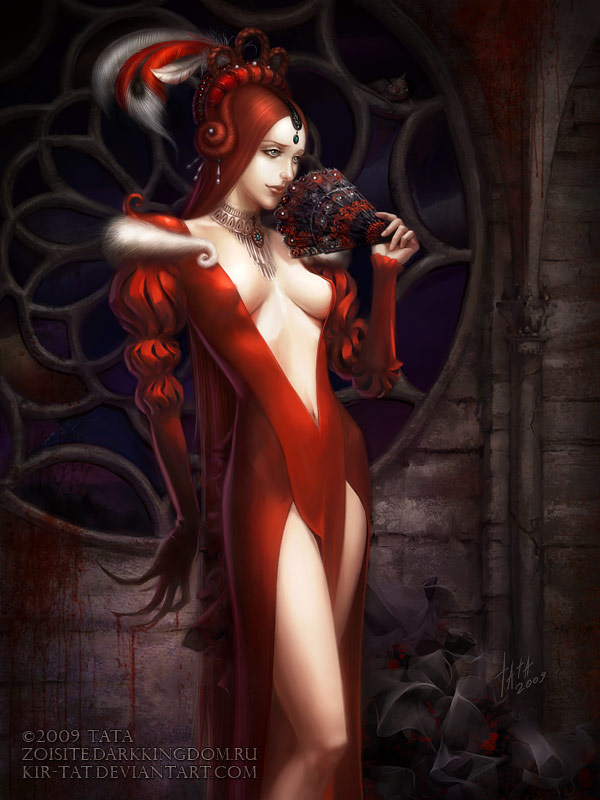Hello freaks!
Again the focus of this roguish blogger is on #dndnext Rogues. But it's actually really on a different class compared to the last time, since the playtest packet has been updated with lots of changes, since.
This latest incarnation works very very well for me personally, in that even if it doesn't have my favorite feature from the previous one (Slippery Target, which marked the first time a Rogue could be deadly without actually attacking), it still manages to be a pretty good incarnation of my concept of Rogue. So let me stress it again: if I like it so much even without my favorite feature, it must be pretty darn cool!
So what's so cool about the new Rogue?
Rogue Schemes. The new incarnation of Rogue Schemes is incredibly cool. But if you know me, you also know that if I think it's cool, it doesn't mean it's cool as it is, but as it can be...
Yes, Rogue Schemes can be awesome. And that's because they can be as customizable as you want. That is, of course, if you're willing to accept the fact you're not using the game elements as they come straight out of the box. But don't close the tab yet, you fan of vanilla things! I wouldn't be as excited as I am about this if this game element required actual changes to work for me. It's not about changes: it's really just moving things around within a very strict... Scheme. The Rogue Scheme follows a scheme, yes it does. And it's a really neat one too:
- Advantage tactic: not the official name of the feature, this is one of three tactics the Rogue Scheme offers for the Rogue to gain an all important Advantage during a round of combat.
Here they are, described in loose terms, and with my comments. - Tumbling Strike: Advantage on melee attacks when starting turn at least 20 feet from target. This is wonderful since it's the heart of skirmish tactics and it doesn't make you depend on your allies, but it's far more restrictive than one could first think, because of the start of turn condition. If the target focuses on the Rogue and chases him/her, then the Rogue will likely never start 20 feet from the target, even if moving full speed after a Spring Attack (more on that later).
- Backstab: Advantage on melee attacks against enemies that have another hostile creature adjacent to them. So it's flanking and it's very good, apart from the fact that it makes you teamwork-dependent.
- Isolated Strike: Advantage on both melee and ranged attacks against enemies that have no other hostiles adjacent to them. This is apparently the least restricting of the three, and the only one working at range. But the subtle reason for which it's limited is that it forces the party to either deal with that target at a certain range, or leave it to you. So not very good in a typical party and in situations where you want to take down an enemy ASAP by focusing all attacks on it. Surprisingly good within a party were the melee characters are mobile and/or fight with Reach weapons! Or within all-ranged parties (but those will be rare in current D&D Next, I suspect...)
- Skills and Mastery: these come as different features in the Rogue Scheme block, but they're locked to each other. You get two bonus Skills and then the Mastery feature (called differently depending on the scheme, such as Charm Mastery, Assassination Mastery etc), which makes you roll an additional d6 when performing checks with the Skills you received as bonus ones. Note that non-Rogue characters actually NEVER get such a high Skill bonus, not even at level 20. The maximum advancement of the Skill Die (and on ONE Skill only) goes up to d12 for everyone. But as a Rogue at 1st level, you already have TWO Skills with a 2d6 bonus. This is HUGE. And by the way, both this and the Advantage-gaining tactics are exactly what I had asked for the Rogue in the feedback surveys. WotC LISTENS...
- Bonus Feats: nothing less than THREE bonus Feats. This sounds unbalanced at first, but Feats have been retouched quite a bit and organized into categories. And the Expert Feats from which all the Rogue Scheme bonus Feats come are essentially the new place for the Rogue Skill Tricks of the previous packet.
Plus, I said the customization was good here because each Scheme followed clear constraints, and if we assume the limitation to Expert Feats is one of those constraints, then no Feats from other categories. After all there are a lot of Expert Feats alone!
A murder of rogues... All different!
Can you believe I'll probably turn my Illusionist Mage character into a Rogue, and feel like it better fits my initial concept? Can you believe I'll play in a party that will be mostly made of Rogues, and yet they feel almost like different classes? No more fussing, here go the examples, taken from my still-not-truly-began campaign!
Evel, the charming acrobat hide-and-seek vampyress
Evel is a vampire in my campaign, but vampires are not that powerful in the Innistrad setting where we play, so for balancing reasons, I will just use the High Elf race, with bonus to Charisma instead of Intelligence, Mage Armor as the go-to cantrip, and an extra way of recovering Hit Dice, which is also compulsory if the vampire doesn't want to starve to death, you get what I mean... Also, many vampire limitations that I won't list.
Evel is a Rogue that combines borderline-erotic charming abilities with fast and furious melee fighting (with her vampiresque claws you see in the illustration..!). So here's her custom Rogue Scheme, which is actually a mix of Rake, Assassin, and Acrobat, plus her other feats since we're 4th level:
- Tumbling Strike (from the Acrobat scheme, perfectly catches the intended flavor!)
- Charm Mastery and Skills (from the Rake scheme, no changes needed: Bluff and Persuade)
- Bonus Feats: Charming Presence, Taunt, Tumbling Movement (an even more charming Rake. Note that Taunt should be called Seduce in this case..! The effect is the same, the method different!!)
- Other Feats: Hide in Shadows (she still wants to be sneaky), Spring Attack (nearly needed for Tumbling Strike)
- Background: Guild Thief (Tumble instead of Sneak, since she gets Sneak from Hide In Shadows)
Darius von Richten, the knowledgeable monster hunter
Darius is a bounty hunter specializing in dangerous monsters such as lycanthropes, undead monstrosities, devils, and vampires. He's a urban ranger in a way, but also at home in the wilderness. The Scout scheme is nearly perfect for him. Also consider I'm using the Wood Elf mechanics (deprived of anti-Sleep bonuses and Trance) to better represent his haunted nature (he's been possessed by a demon when only a child), and the wilderness expertise. So Spot and Listen will end up being REALLY top-notch on Darius, combining Mastery and Advantage. The many Recall Lore skills also make him the sage of the group.
- Isolated Strike (as per regular Scout)
- Scouting Mastery and Skills (as per regular Scout)
- Bonus Feats: Track, Superior Skill Training (Recall Lore(Nature & Forbidden Lore), Ambush (not Expert Feat, but I think it's a perfectly fine excpetion)
- Other Feats: Weapon Mastery (useful for his Crossbows), Precise Shot
- Background: Bounty Hunter (Recall Lore (Religious Lore) instead of Spot.
- Isolated Strike (needs to stay at range)
- Mastery and Skills: Bluff and Recall Lore(Magical Lore) ... (So he actually knows a lot about magic!)
- Bonus Feats: Skill Focus (Bluff), Unflappable, Use Magic Device (So we want a master of bluffs, able to convince even in the most incriminating situations, and of course able to use magic devices...)
- Other Feats: Arcane Dabbler (Minor Illusion, Read Magic), Find Familiar (And here we have what we need for the illusions, the ghost, and the deciphering of spell scrolls!)
- Background: Charlatan (Conceal Object, Persuade, Recall Lore (Folklore), Sense Motive)
 |
| Hruthger's familiar: a "searchlight geist" named Glom, with an accordingly gloomy sense of humour..! |
- Backstab (to better complement the party and work in tandem with the melee character not detailed here)
- Trick Mastery and Skills (as per regular Trickster, Bluff and Conceal Object, needed for story reasons)
- Bonus Feats: Disarm Traps, Open Locks, Tumbling Movement (a technical and elusive thief type)
- Other Feats: Two Weapon Defense, Trip Attack (Upgrading an already high AC, and proning opponents makes him a "secondary defender" in 4e terms!)
- Background: Thug (his deformities alone justify this!)
- A lead man who is equivalent to an apprentice mage and can bluff his way out and into anything, running the scam that the party thrives economically with.
- A marksman scout who is also the sage of the group and can perceive just about any threat and track any prey.
- A charming skirmisher and lurker, who is survivable both in combat and social situation thanks to her trickery.
- A technically proficient thief that is also very good at "locking in" enemies in melee, thus defending the squishy men of the party (the woman doesn't need any defending, unsurprisingly..!)
- Leaf, a young countryside boy that had to be a healer and "wilderness cleric", and is perfectly represented by the Warden Paladin, aided in his healer role by Herbalism and Magical Rejuvenation feats. He is a Commoner (Forester), perfect both to justify the nature connection and the humble origins. Some kind of Joanna D'Arc, but greener and... Male-er!



















0 comments:
Post a Comment